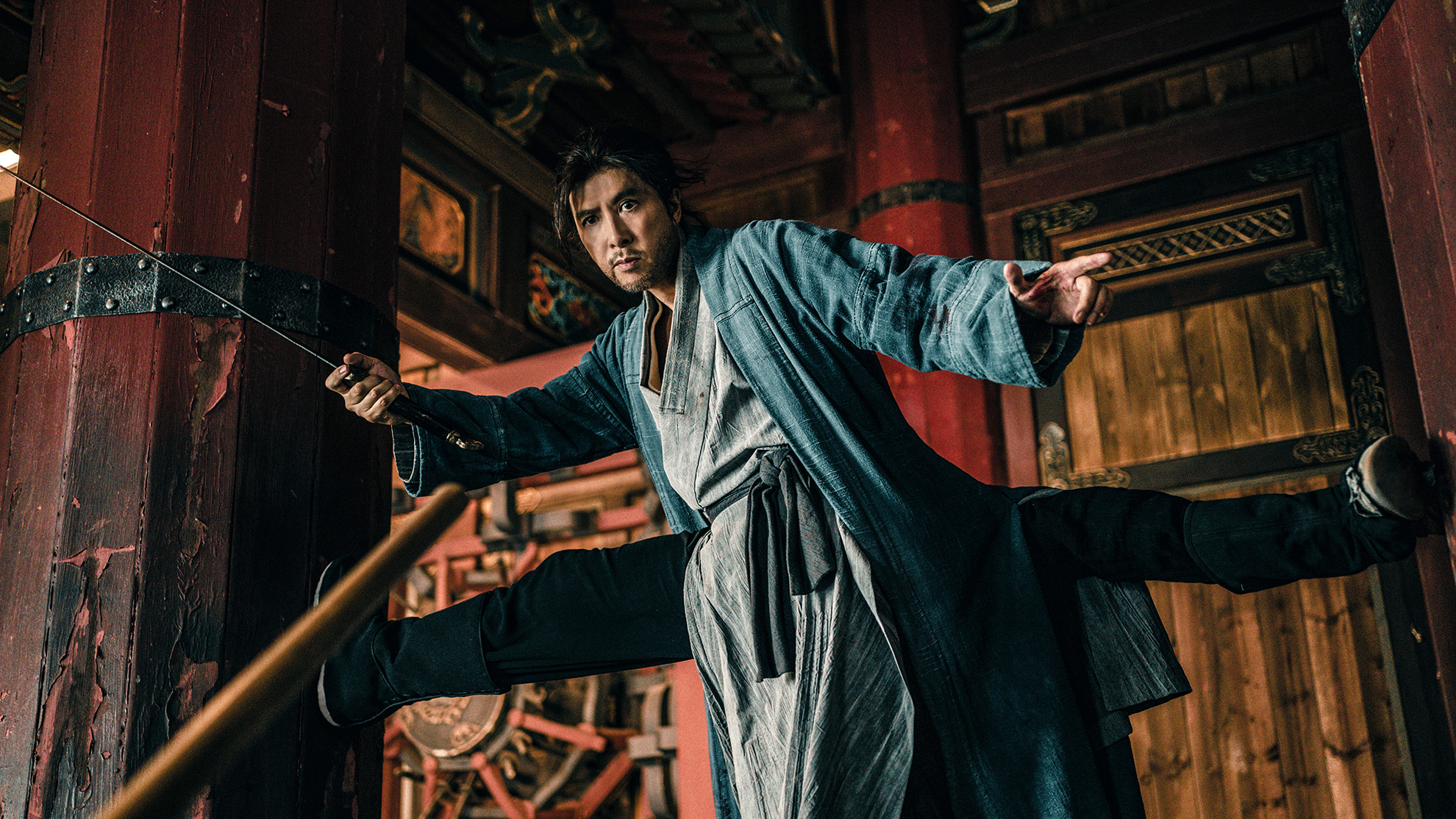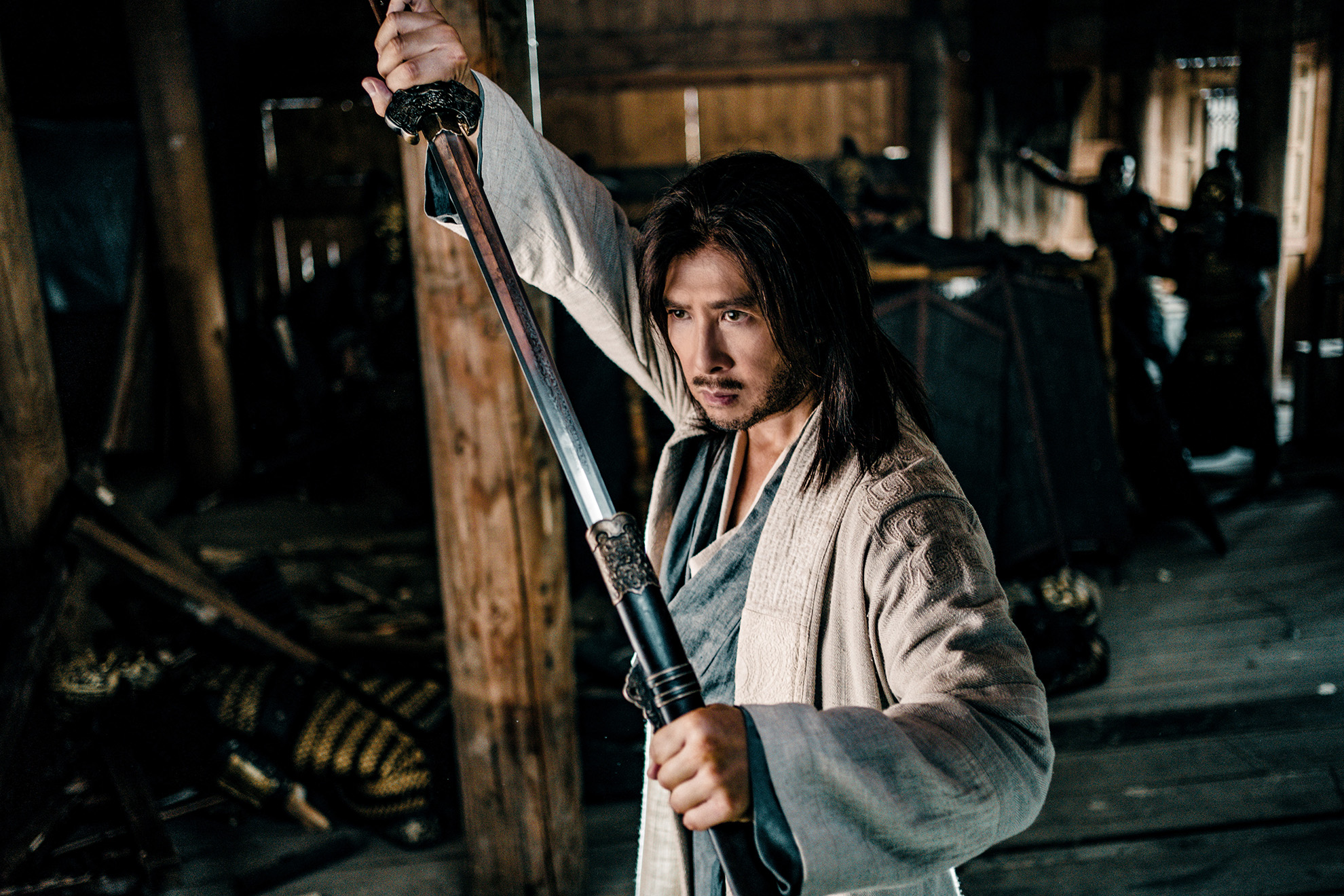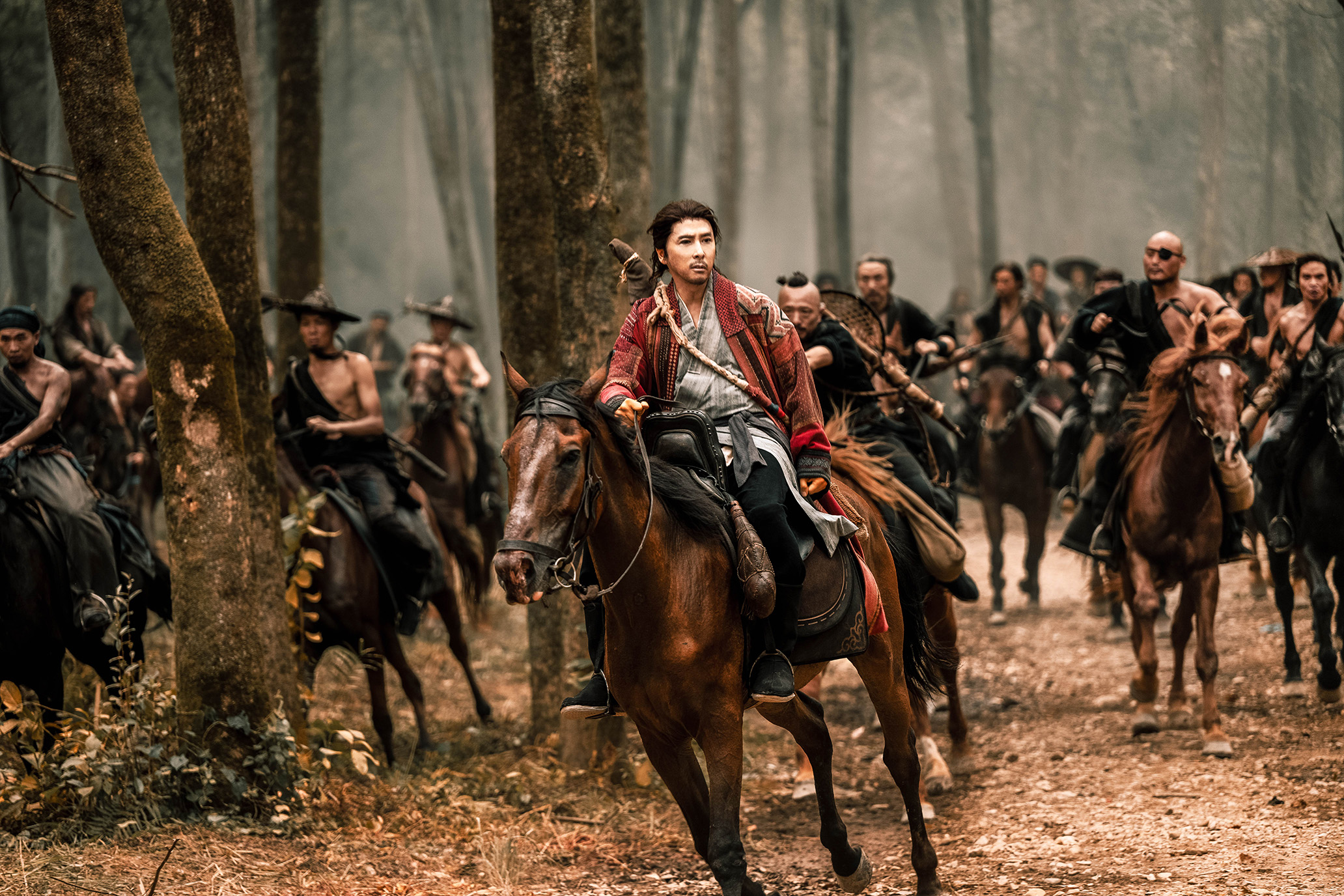ŚAKRA (天龙八部之乔峰传) (2023)
Genre: Martial-arts
Director: Donnie Yen
Cast: Donnie Yen, Chen Yuqi, Cya Liu, Kara Wai, Wu Yue
Runtime: 2 hrs 10 mins
Rating: NC16 (Violence)
Released By: Golden Village Pictures and Clover Films
Official Website:
Opening Day: 16 January 2023
Synopsis: During the Northern Song dynasty, Qiao Feng, the leader of the Beggars’ Sect, was a heroic and chivalrous man who was respected by the whole martial arts world. But he was suddenly accused of being a Khitan, which made him isolated by friends and allies. On his journey to find out about his origin and enemies, Qiao Feng met Azhu the maid from Murong family, and they fell for each other. The two went together through events in Juxian Manor, Yanmen Pass, and the Mirror Lake. Unfortunately, Qiao walked into Mrs. Ma’s trap and killed Azhu by mistake. He finally found out it was Murong Fu who schemed all this to revive the former Yan kingdom. After he killed Murong Fu, Qiao Feng went beyond the Great Wall as Azhu wished.
Movie Review:
Almost two decades later, Donnie Yen returns to the director’s chair with this adaptation of Jin Yong’s ‘Demi-Gods and Semi-Devils’ to tell the story of Qiao Feng. Those familiar with the classic novel will know that of the three protagonists, Qiao’s story is the one most commonly retold, rife as it is with betrayals, reprisals and tragedy. Indeed, Qiao was the highly regarded leader of the Beggar Sect, before labelled a traitor due to his Khitan ancestry and falsely accused of murdering the gang’s deputy chief, his Shaolin master and his own adoptive parents.
That Qiao will fight to redeem his name and uncover the truth is an understatement, but also precisely why besides directing, Yen also takes on the lead role of Qiao. It is a hard act to follow, considering how Yen would be going in the footsteps of such luminaries as Bryan Leung, Norman Chui and Felix Wong to play the master of the legendary ‘Eighteen Subduing Dragon Palms’. That said, the same can be said of Chen Yuqi, who plays Qiao’s ill-fated lover Azhu, and Cya Liu, who plays Azhu’s younger sister Azi.
Aside from a prologue narrating how Qiao was raised as a baby by a peasant couple and how he had won the respect of the Beggar Sect elders as a teenage boy, ‘Sakra’ largely begins with Qiao as the righteous leader of the aforementioned sect. An elaborate opening fight sequence also establishes Qiao’s exceptional martial arts skills, with such moves as the ‘Dragon Claw’ (虎爪手), ‘Branch Beats the White Chimpanzee’ (打狗棒), and of course the ‘Palms’ (降龍十八掌), in order to free Emperor Duan Zhengchun’s son who is held captive by an unforgiving monk.
Qiao’s fall from grace follows immediately after this glorious introduction, with four Beggar Sect elders and the slain Vice Master Ma’s wife Kang Min (Grace Wong) accusing him of murdering Ma in order to keep his Khitan ancestry a secret. Soon after, Qiao’s Shaolin master Xuan Ku and both his parents are also murdered, though we will say that those who do not already know who the murderer is (from previous Qiao Feng adaptations) will only find out right before the end credits. While at the Shaolin monastery, Qiao also runs into Azhu, who is there to steal a sacred scroll and ends up being severely injured by the Powerful Vajra Palm (大力金刚掌).
After trying to keep her alive through his internal powers, Qiao realises the only way to save her is to seek the help of the renowned physician Xue Muhua (Yuen Chung-yan). That selfless act brings Qiao head to head with the various ‘wulin’ sects gathered at the Juxian Manor, and therefore the film’s next big sequence with Qiao engaging in a ferocious battle to the death with many of his former friends and acquaintances, including the leaders of the Beggar Sect who had raised him and the Shaolin monks who had trained him.
Up until this point, Yen proves a surprisingly adept director, balancing the busier scenes with Qiao and the rest of his ‘wulin’ brethren with more intimate moments of soul-searching and character-building between Qiao and Azhu. He also gets solid help from his protégé turned action director Kenji Tanijaki, who designs and choreographs several impressive fight scenes to let Yen showcase how agile, nimble and swift he remains as a martial artist even while approaching the age of 60. Where he falls short though is as leading man, specifically when it comes to emoting his character’s inner distress whether at the death of his loved ones or in severing ties with those he had either grown up with or had raised him.
Yen’s grip on the story falters after this strong first hour, especially with the introduction of the other intertwining characters from the novel, including the devious Murong Fu (Wu Yue) of the Yan kingdom and Duan Zhengchun (Eddie Cheung) of the Dali kingdom. Though the book does likewise, the way these other characters are introduced is abrupt and even somewhat awkward, such as how Qiao and Azhu just so happen to run into Duan having a tiff with his lover Ruan Xingzhu (Kara Wai) and their daughter Azi on a bridge while rowing their boat down a river.
It is also puzzling how Yen chooses to reveal certain key plot details only right before the end credits after almost all is said and done. It isn’t just the earlier mentioned detail about who killed Xuan Ku and Qiao’s adoptive parents, but also how this individual had carved a message in Khitan on a large rock face before apparently jumping off a cliff to his death, which so happens to be the same rock that Qiao visits after he is rescued by a mysterious masked benefactor and is reunited with Azhu. Ditto the mastermind behind the attack on Qiao’s real parents at this cliff called Yanmen Pass, who is also connected to Murong Bo and is significant enough to be played by none other than Ray Lui.
It isn’t easy to condense what has otherwise been told over an entire 40-episode TV series in the span of two hours, and indeed the challenges of staying faithful to the novel while keeping within a feature length is all too apparent here. Thankfully, Yen still goes out on a high with an extravagant finale that sees Qiao and Azi going up against Murong Bo and his Yan army; in particular, the mano-a-mano between Qiao and Bo sees Yen do a satisfyingly epic display of the ‘Eighteen Subduing Dragon Palms’ against the latter’s ‘Star Subduing Palms’.
Unlike Wong Jing’s ‘New Kung Fu Cult Master’ last year, ‘Sakra’ was not filmed as a two-parter; that said, for all its storytelling flaws, it is still a solid wuxia action thriller that will bring back fond memories of a genre which used to define Hong Kong/ Chinese cinema. For pulling triple duties (as actor, producer and director), Yen fairs pretty well in every single department, not least because he did not have the luxury of time and budget. If anything, we’d love to see Yen go head to head with Lui, and enough reason for us to hope that ‘Sakra’ gets a sequel.
Movie Rating:




(Combining Donnie Yen's signature propulsive action with Jin Yong's classic tragic story, 'Sakra' is a mostly spirited 'wuxia' thriller that should bring back fond memories of the somewhat lost genre)
Review by Gabriel Chong
You might also like:

Movie Stills




.jpg)


